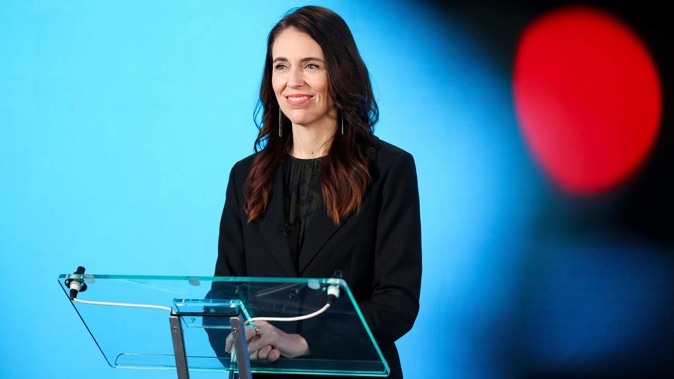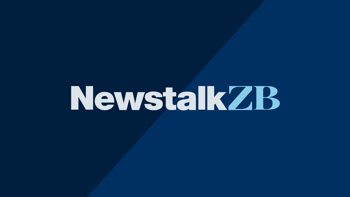
Prime Minister Jacinda Ardern and German Chancellor Angela Merkel say they hope lessons of the Covid-19 pandemic will be taken on board by the world to combat climate change.
In a panel on day two of the Apec CEO Summit, hosted by New Zealand from Auckland's Aotea Centre, Merkel warned the pandemic was "not over yet", with still-rising cases in her country.
The two world leaders said lessons of information-sharing across countries, listening to scientists and "socialising" data with the public needed to be taken on board to address climate change, which Ardern said was already being "acutely" felt in the Pacific.
But they both also warned of the rising challenge of misinformation, fuelled by social media.
The Asia-Pacific Economic Cooperation (Apec), established in 1989, is a regional economic forum made up of 21 countries.
The panel discussion, hosted by Microsoft president and vice-chairman Brad Smith, comes ahead of the Apec leaders' forum tonight.
It will be hosted by Ardern - the first time New Zealand has hosted it since Jenny Shipley in 1999.
Up to 20,000 visitors had been expected at Apec events in New Zealand throughout the year, but Covid-19 has meant all of Apec has been held online.
In the panel Ardern said while countries had plans for dealing with a pandemic, the rapidly-evolving nature of Covid-19 meant "you're building the plane whilst trying to fly".
In New Zealand, the Government realised early the need for sharing information early, utilising skills of different sectors, and learning and adapting quickly.
It was also important to "socialise" the information and data guiding decisions.
"Very early on we talked about flattening the curve, but we saw models showing that would still overwhelm hospitals.
"We shared that information meant there was cohesion around the response."
This enabled things the Government "would not have imagined being able to do", such as introducing lockdowns, she said.
"Everyone understood why. It meant that it was much easier for us to do that because people would come on that journey."
Merkel, who became Chancellor in 2005 and is standing down this year, said Germany faced a different situation.
Where New Zealand chased a "zero Covid approach" Germany set a "yardstick" trying to keep case numbers low so as not to overwhelm the health system.
But as case numbers rose it too had to intervene.
Germany was experiencing its fourth wave of Covid-19, and Merkel warned the pandemic was "not over yet".
Despite high vaccination levels there were still some they had not reached. They had to work to impress on them they had a right, but also "a duty", to protect themselves and others, she said.
Merkel said learning how to deal with exponential growth and intervening "preventatively" should be applied to climate change.
"That also explains why we have neglected the issue of climate change because there we are witnessing exponential growth to you have to act at a time where it is not yet visible."
Covid had also shown how interconnected the world is.
"That sense of how small our group actually is, when it looks to the spread of such a virus. I think that should continue to guide us when we tackle issues like biodiversity and climate protection."
Ardern said some argued immediacy of the pandemic had enabled a rapid response. But on climate change the urgency was even more immediate.
"Maybe that's why within our region and within the Pacific, climate change does feel very acute because there is an immediacy to it. We can already see the effects of it here."
New Zealand was playing "catch-up", but was committed to doing its part.
Merkel said people were accessing their news differently today, engaging in "smaller bubbles found on the internet" and not engaging in wider discussions.
Smith said that "disinformation has become almost the existential threat to the democracies of the world".
Ardern said this had made responding to the pandemic difficult.
"When you're having a discussion around how best to manage a pandemic, you really are on the backfoot if people don't believe that the pandemic in the first place is deadly, or that there is a role for the use of modern science and technology in responding to that pandemic. The misinformation just makes that challenge that much harder."
At this evening's (NZ time) leaders' summit, the focus is expected to be on economic and trade policy, digital innovation, and increased inclusion for sustainability, all as countries looked toward Covid-19 recovery and issues around vaccines, mandates and movement of people.
One of the few traditions maintained at the annual summits is the so-called "silly shirt".
Leaders have all been sent a New Zealand-made offering to wear for the summit - those will be unveiled as the meeting starts at midnight, and are expected to be merino.
When New Zealand last hosted in 1999 leaders received black jackets emblazoned with a silver fern.
Take your Radio, Podcasts and Music with you








